|
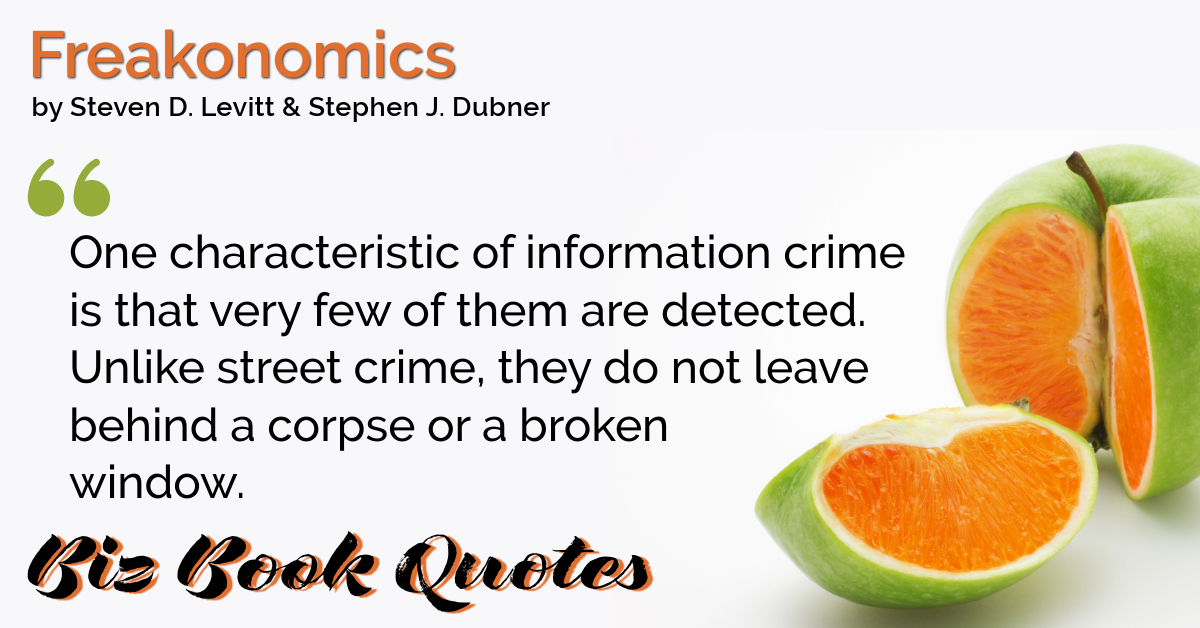
|
Freakonomics:
One characteristic of information crime is that very few of them are detected. Unlike street crime, they do not leave behind a corpse or a broken window.
|
066 |
|

|
Freakonomics:
If you were to assume that many experts use their information to your detriment, you’d be right.
|
067 |
|
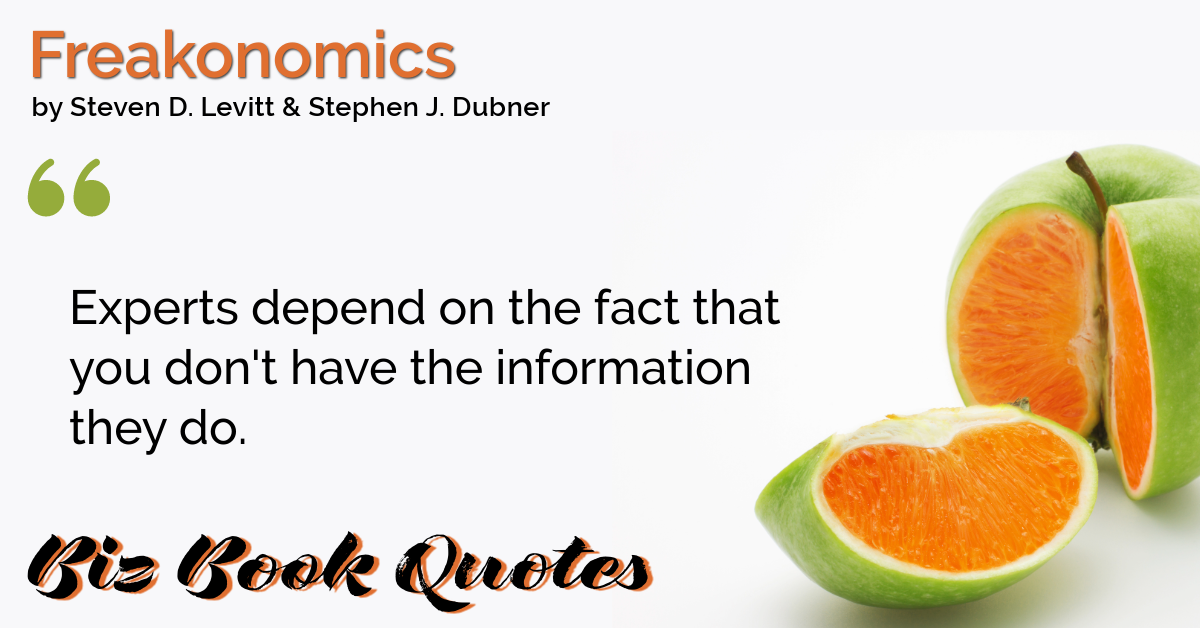
|
Freakonomics:
Experts depend on the fact that you don’t have the information they do.
|
067 |
|
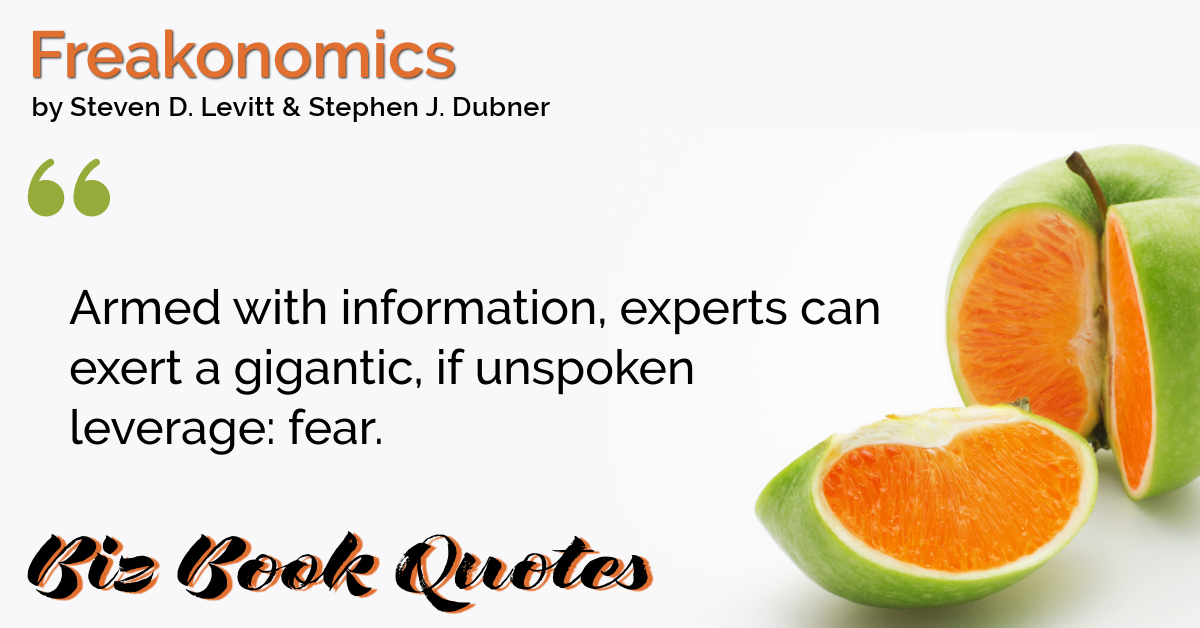
|
Freakonomics:
Armed with information, experts can exert a gigantic, if unspoken leverage: fear.
|
067 |
|
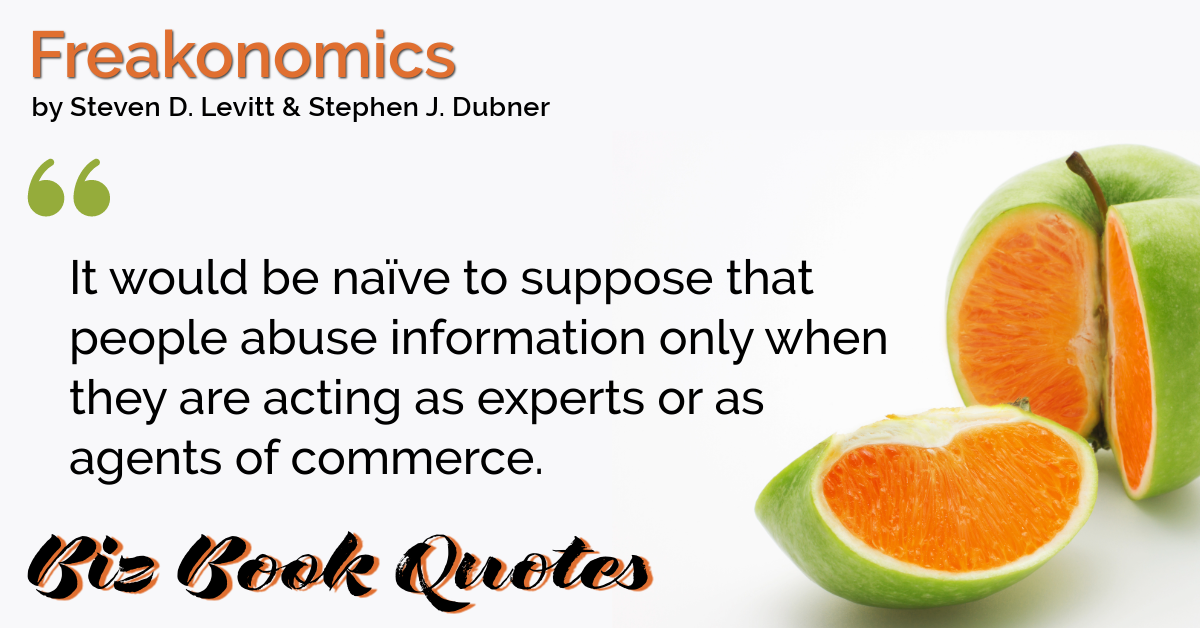
|
Freakonomics:
It would be naïve to suppose that people abuse information only when they are acting as experts or as agents of commerce.
|
073 |
|
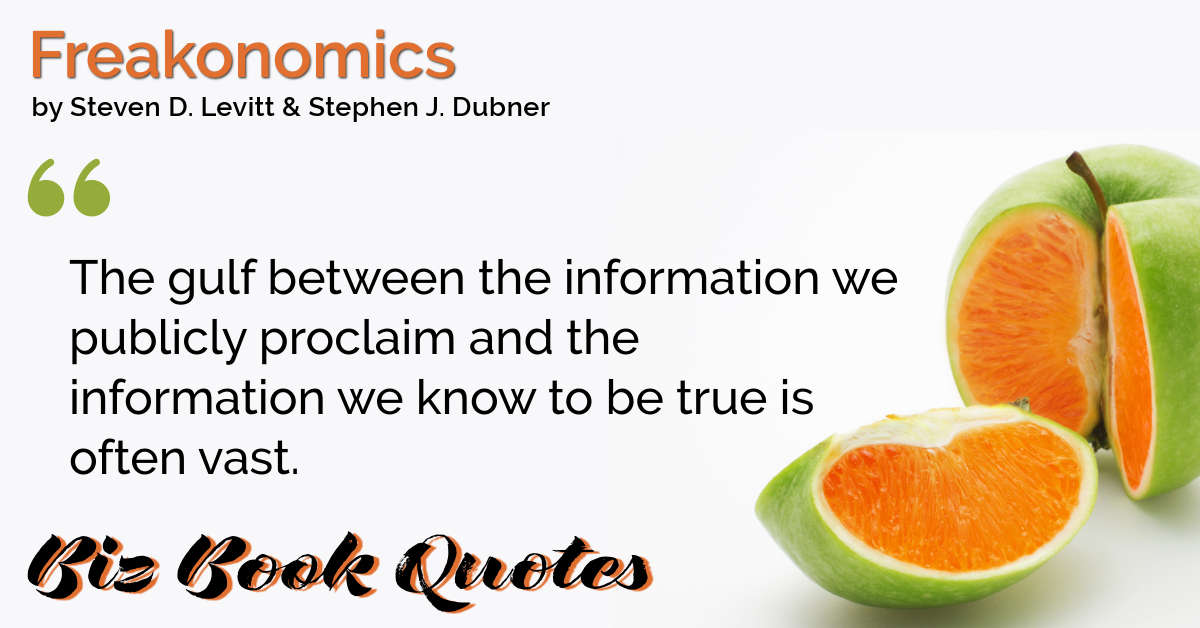
|
Freakonomics:
The gulf between the information we publicly proclaim and the information we know to be true is often vast.
|
082 |
|
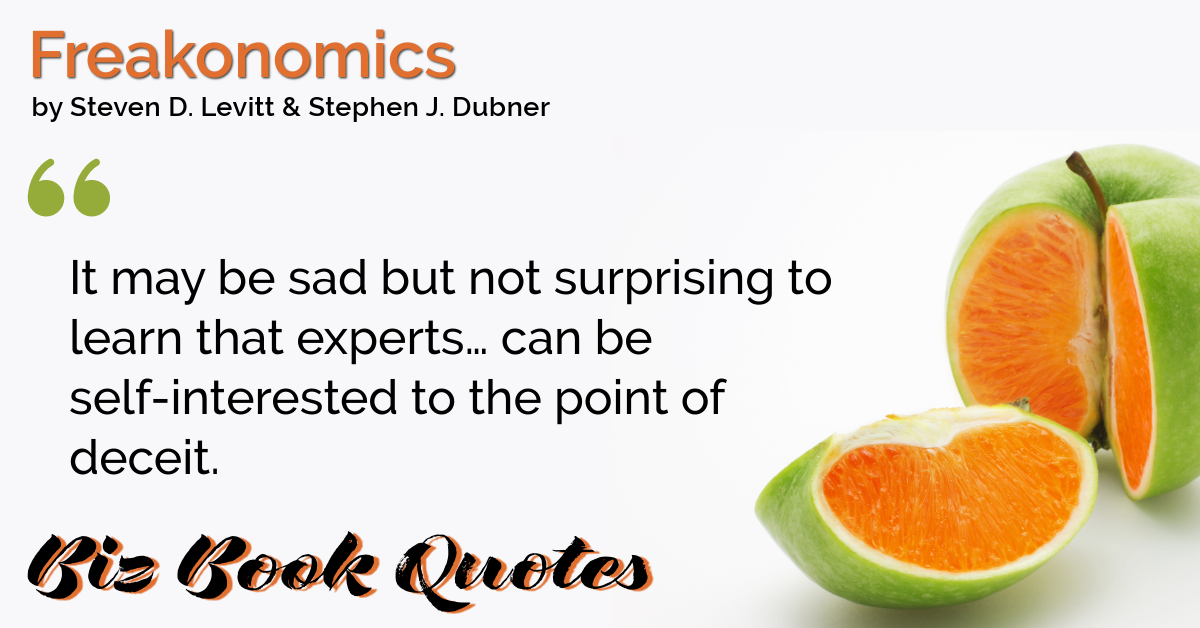
|
Freakonomics:
It may be sad but not surprising to learn that experts… can be self-interested to the point of deceit.
|
087 |
|

|
Freakonomics:
Working together, journalists and experts are the architects of much conventional wisdom.
|
087 |
|
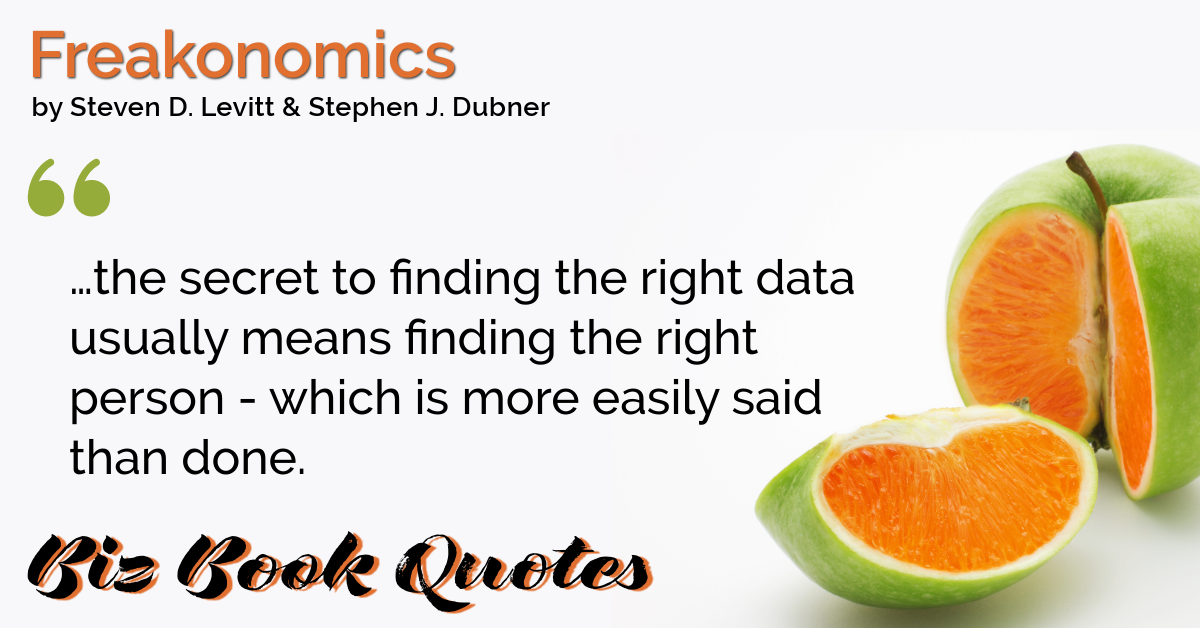
|
Freakonomics:
…the secret to finding the right data usually means finding the right person – which is more easily said than done.
|
089 |
|
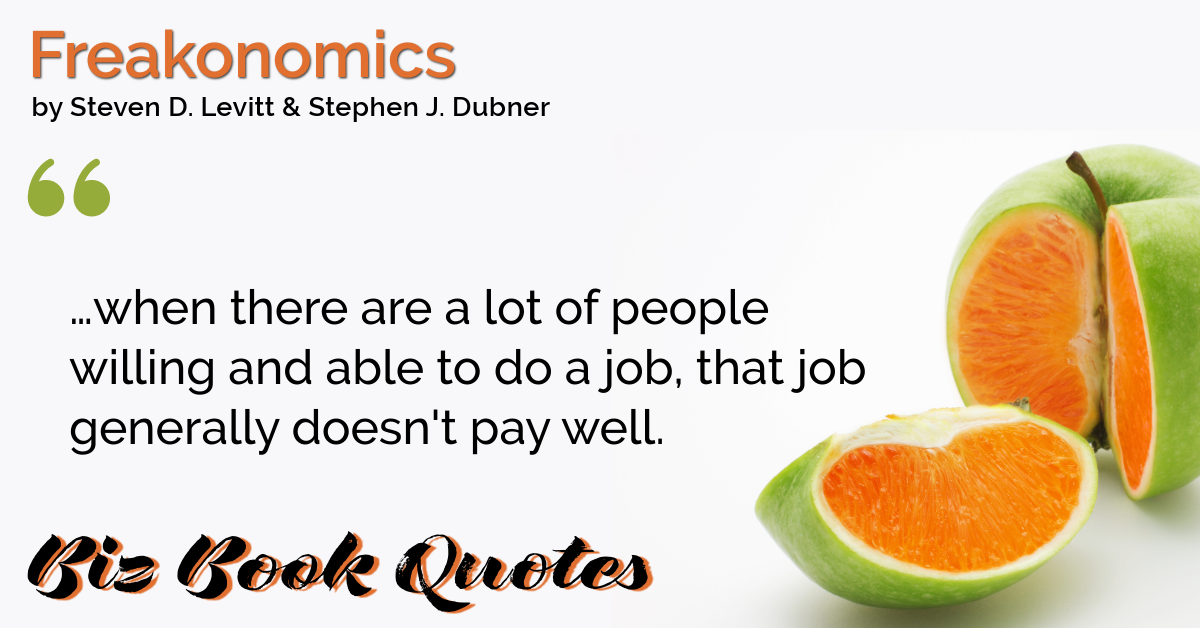
|
Freakonomics:
…when there are a lot of people willing and able to do a job, that job generally doesn’t pay well.
|
103 |











